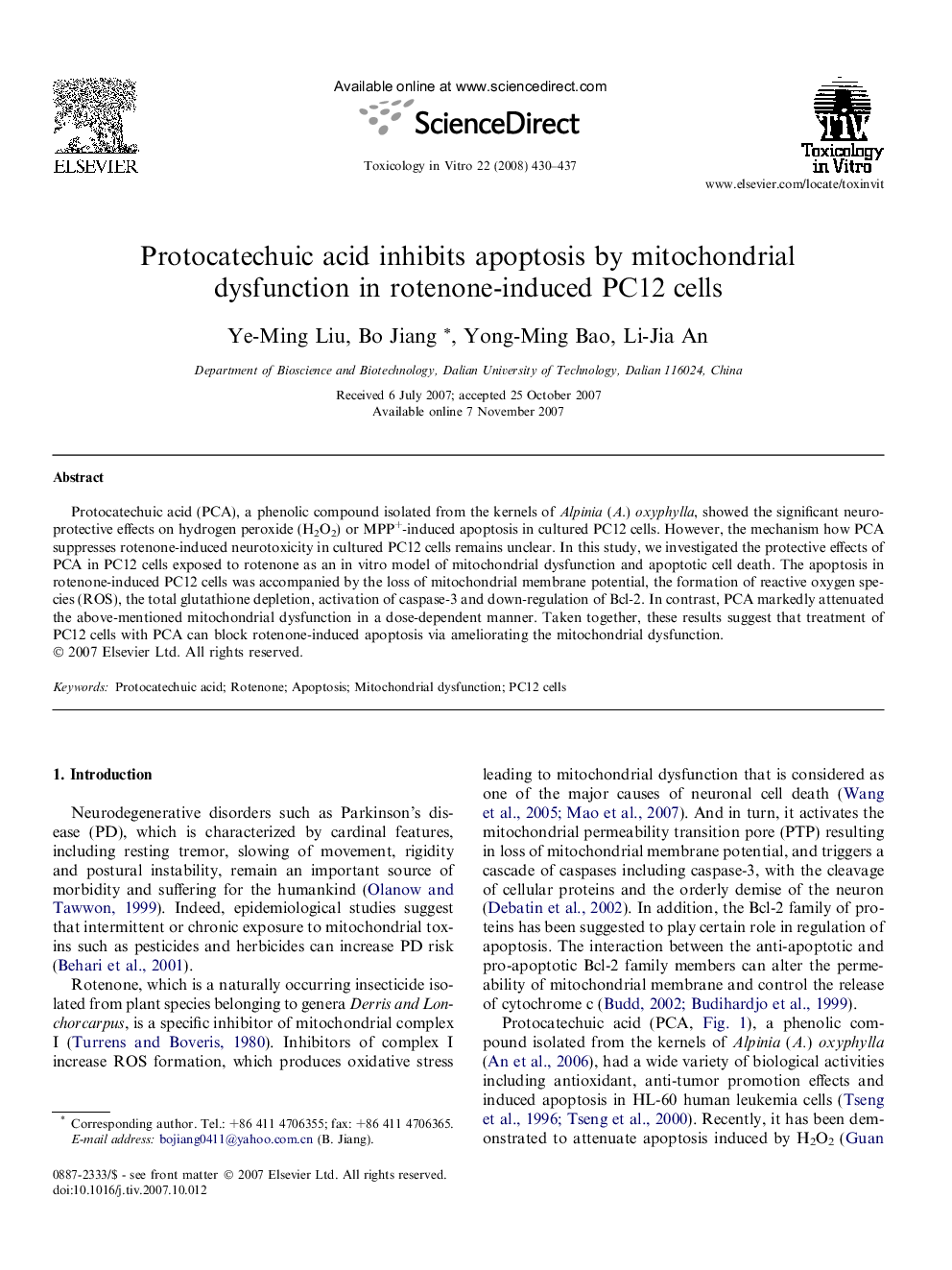| Article ID | Journal | Published Year | Pages | File Type |
|---|---|---|---|---|
| 2603501 | Toxicology in Vitro | 2008 | 8 Pages |
Protocatechuic acid (PCA), a phenolic compound isolated from the kernels of Alpinia (A.) oxyphylla, showed the significant neuroprotective effects on hydrogen peroxide (H2O2) or MPP+-induced apoptosis in cultured PC12 cells. However, the mechanism how PCA suppresses rotenone-induced neurotoxicity in cultured PC12 cells remains unclear. In this study, we investigated the protective effects of PCA in PC12 cells exposed to rotenone as an in vitro model of mitochondrial dysfunction and apoptotic cell death. The apoptosis in rotenone-induced PC12 cells was accompanied by the loss of mitochondrial membrane potential, the formation of reactive oxygen species (ROS), the total glutathione depletion, activation of caspase-3 and down-regulation of Bcl-2. In contrast, PCA markedly attenuated the above-mentioned mitochondrial dysfunction in a dose-dependent manner. Taken together, these results suggest that treatment of PC12 cells with PCA can block rotenone-induced apoptosis via ameliorating the mitochondrial dysfunction.
